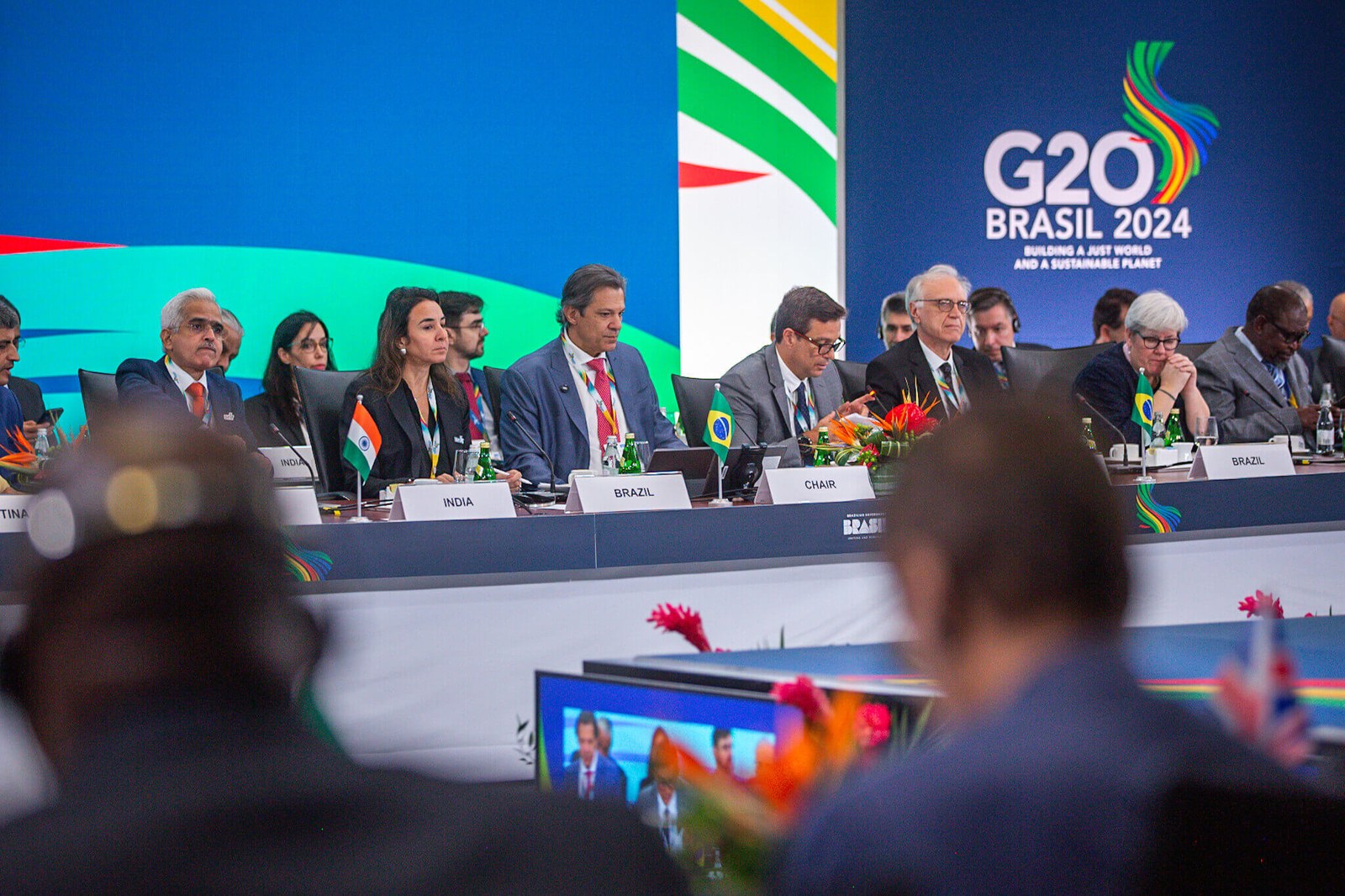Minister Haddad announces the creation of a G20 Roadmap for multilateral bank reforms
"Development banks need to intensify their efforts and work together effectively and at scale,” said Finance Minister of Brasil, Fernando Haddad, during a ministerial meeting of the Finance Track, held in Washington, USA. Brasil will develop an evidence-based G20 Roadmap for multilateral bank reforms to make multilateral development banks better, bigger and more effective. At the center of the effort is the guarantee that the banks' support will continue to be geared towards national development priorities, providing concrete benefits to the countries favored by their investments.

The reform of global governance institutions is one of the priorities of Brasil’s G20 presidency. Building on the work of previous G20 presidencies, Brasil will develop a G20 Roadmap for reforms of multilateral development banks (MDBs) to make MDBs better, bigger and more effective. The Minister of Finance, Fernando Haddad, presented on Thursday (18), in Washington, United States, the main ideas that will guide the construction of the Roadmap.
According to the minister, "to drive transformative development, multilateral development banks need to intensify their efforts and work together effectively and at scale," he affirmed.
At the center of the effort to transform and strengthen the multilateral banks is the guarantee that the banks' support will continue to be geared towards national development priorities, providing concrete benefits to the countries favored by their investments. The work will be based on studies and dialogues, coordinated by the G20 presidency, and will include short-, medium- and long-term objectives and practical initiatives.
The G20 Roadmap for multilateral development bank reforms will be presented at the fourth Finance and Central Banking Ministerial Meeting in October, after being discussed among G20 members, with the participation of the banks, and in the engagement groups.
Fernando Haddad also advocated joining forces between the G20 member countries to defend significant reforms within the framework of the International Financial Architecture. With the presentation of Brazilian proposals in important forums to be debated in the hope of generating a collective commitment and viable decisions within the boards of the multilateral banks.
G20 roadmap of MDB reforms
In addition to providing funding, fostering resources and mitigating risks, multilateral development banks contribute with knowledge and experience to the creation of solutions for countries' development.
That is why, given the importance of these institutions, the G20 Roadmap for multilateral bank reforms began to be formulated based on three pillars. The objective of the first pillar is to facilitate access to loans to support countries' main needs. To this end, the G20 presidency will draw up a report on operational improvements and present comprehensive, evidence-based recommendations. The goal is, among other things, to improve collaboration between multilateral banks so that they function as a cohesive system with data sharing and lessons learned. The first pillar also seeks to encourage support for local currency financing and guarantees on national platforms supported by development banks.
The second pillar deals with ways to strengthen the banks' financing capacity and the third proposes, among other mechanisms, improving the evaluation and use of results and lessons from previous experiences. The idea is for shareholders and private investors to be able to evaluate performance and the cost-benefit ratio and decide which development banks will be the best partners in terms of providing a better result for their demands.
The Roadmap also undertakes to map the practices of banks at a regional level and the issue of gender in leadership positions. The intention is to help give women and developing countries a greater voice in the decision-making processes of international economic and financial institutions. And thus collaborate so that the world can have more effective, reasonable and responsible institutions.